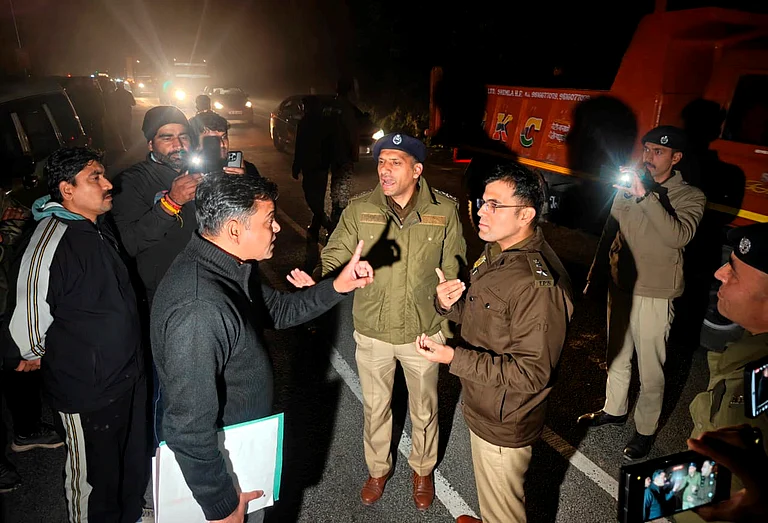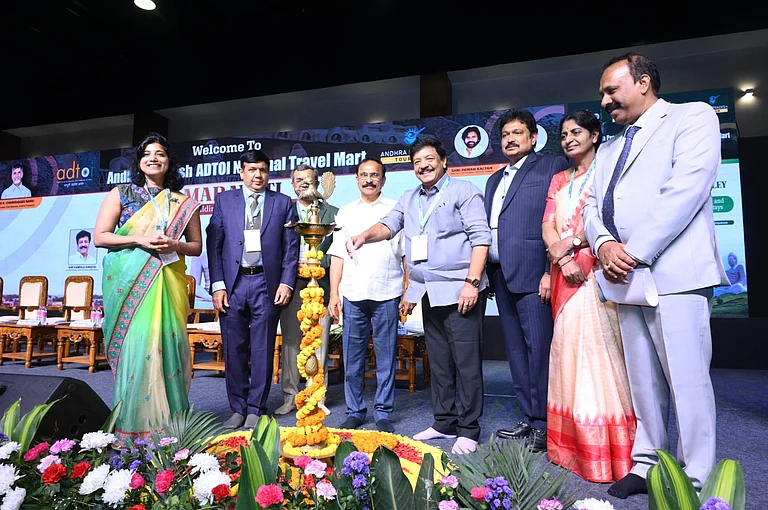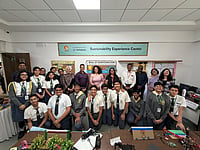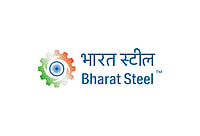The 30th CII Partnership Summit 2025 in Visakhapatnam not only brought major investments into focus but also demonstrated how a global event can be conducted with disciplined waste management.
Behind this outcome was a coordinated team of nearly 1,700 on-ground personnel whose steady, organised efforts ensured that the two-day summit remained almost plastic-free, and generated no landfill-bound waste.
According to the Greater Visakhapatnam Municipal Corporation, the summit generated around 4 tonnes of waste, including 2 tonnes of wet waste, and 2 tonnes of dry waste. Most of this comprised kitchen leftovers, biodegradable materials, cardboard and paper. “Every bit of food waste was diverted to the biogas plant, ensuring nothing went to landfill,” said Dr EVN Naresh, Chief Medical Officer of Health, GVMC.
All dry waste was routed to the Material Recovery Centre, where recyclable and non-recyclable materials were separated. “Around 30 kg of non-recyclable material eventually went to the waste-to-energy plant. Even the glassware used at the summit followed a circular route. All bottles were sent to an RO Bottle Unit where they were washed, and UV-sterilised, making them fit for reuse in future events,” he revealed.
Inside the main venue, the CII engaged 200 operational personnel per day, divided across two shifts. Each shift consisted of 100 sanitation staff responsible for maintaining hygiene across all venue zones, 50 members of the hospitality and food service teams, and 50 kitchen support personnel.
GVMC’s disciplined waste management lauded
Their task was not only to keep the premises clean but also to ensure that all waste generated was channelled correctly for recycling or processing.
Around the venue, the GVMC, under the leadership of Commissioner Ketan Garg, deployed about 50 personnel per shift across three shifts to maintain cleanliness, and manage movement, on the two principal roads connected to the venue.
A further 1,000 volunteers were stationed along 26 important stretches, including routes to hotels, tourist locations, and access roads to the summit venue.
“We intentionally limited the use of our core workforce to avoid disrupting essential civic services across the rest of the city,” Dr Naresh said, noting that the deployment plan balanced event requirements with routine civic needs.
Delegates themselves noticed the impact of these efforts. “The near-total absence of plastic was impressive. Glass and paper were used widely, water cans were placed everywhere, and waste was cleared promptly. A few plastic covers were seen, but overall usage dropped sharply compared to what we usually see elsewhere around the world. These are small but meaningful steps,” said a foreign delegate.
A participant from the national capital expressed similar appreciation. “We attend many conferences in the country, and the waste management here stood out. Even washrooms were cleaned after every use. The segregation and cleanliness were commendable, and the support staff’s continuous effort deserves recognition,” added a delegate from Delhi.


























